Irritated underarms: How to look after them?
Some deodorants or even sweat itself can irritate our underarms. We are going to tell how to cure them in this post.
The skin of our underarms is one of the most delicate parts of our bodies, but since it is a “hidden” part we tend to pay it less attention than it deserves. Excessive sweating or inappropriate epilation are just some of the causes of irritated underarms. We are going to discuss the most common causes of this irritation, what to do if it happens, and a suitable routine to care of them.
What causes irritated underarms?
Have you ever wondered why this zone is so sensitive? Our underarms have a high number of nerve endings and our lymph nodes are there. This, along with it being an area that gets little exposure to the sun means that the skin is very thin, thus making it a very delicate zone. There are several reasons today why are underarms can become irritated, take note!

- Sweating: the higher the temperature, the more our skin sweats. This, and tight, non-breathable clothing, can cause skin reactions such as rashes and itching.
- Friction against our skin or clothes: our underarms are in constant contact with our skin and the fabric of our clothing. The friction caused by this contact can be made worse at certain times, for example with higher temperatures, tight clothing or when doing sport. Friction, along with sweating, can cause skin reactions such as the rashes mentioned earlier, and even some chafe burns.
- Epilation: this is one of the most common causes of irritated underarms. The hair that covers our underarms protects this area, and by eliminating it, we make this zone more sensitive. Furthermore, some epilation methods, such as hot wax or razors, can cause irritated underarms, inflammation in this part of our body, and in some cases superficial burns.
- Cosmetic products: the chemical composition of some cosmetic or hygiene products, such as deodorant, can also cause irritation.
- Diseases that affect our underarms: there are different diseases that can affect this part of our body and cause irritated underarms. Some of them are: contact dermatitis, allergic dermatitis, folliculitis or different fungal infections. All of them should be diagnosed by a doctor.
How to prevent underarm irritation?
- Appropriate hygiene: this means using products that are suitable for this part of our body, with components that do not cause irritation. If you are susceptible to having irritated underarms, you should change your spray-on deodorant, as their ingredients tend to be more aggressive, and use a roll-on, or one that contains more natural ingredients, such as alum stone.
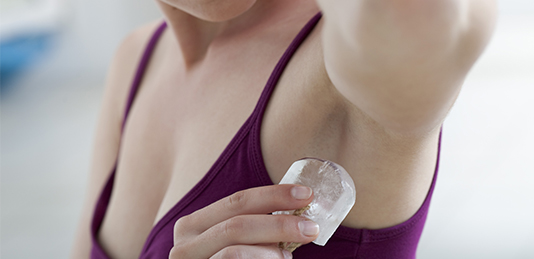
- Antiperspirant products: sweating excessively in this area can cause irritated underarms. Antiperspirants are designed to block sweat, to reduce the effect of bacteria maceration and to keep the zone dry.
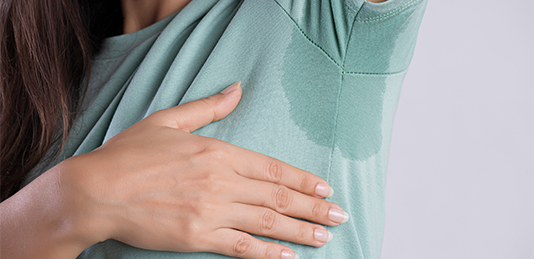
- Comfortable clothing: wearing comfortable clothing when doing sport or activities that make us sweat can reduce friction in that area, and therefore irritation.
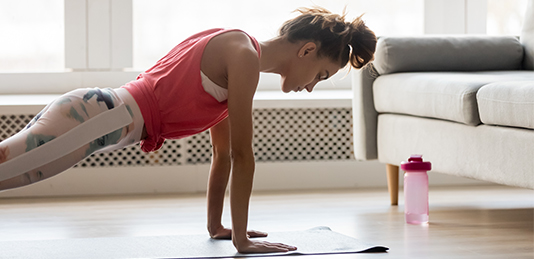
- Suitable epilation methods: there is a suitable epilation method, for everyone and all types of hair, which can help to prevent irritated underarms. Whichever method you choose, you should always calm the area afterwards with aloe vera or rosehip oil, and wait for a while before applying any deodorant.
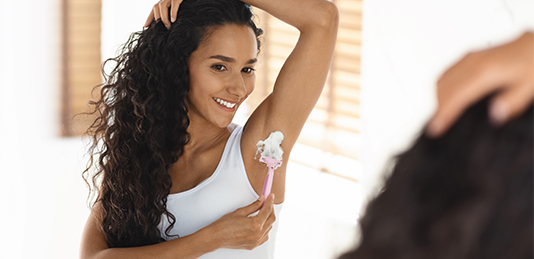
- Hydration: : as is true for the rest of our body, our underarms may also get dry and need a moisturising routine with enriched creams or body milk, particularly after epilation using aggressive methods.
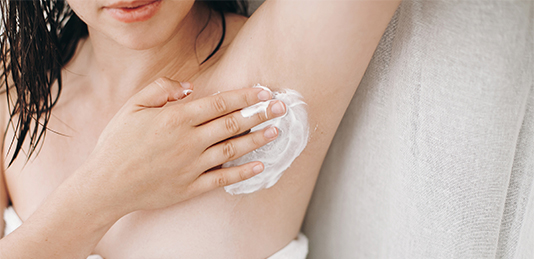
Remedies for irritated underarms
Irritated underarms can be a headache, particularly because of the itching. If your underarms itch for a prolonged period, you should visit a dermatologist, since you may have some kind of skin disease. But if it is an occasional problem, there are several homemade remedies that will alleviate the itching.

- Cold water or ice: apply some cold water or ice to your irritated underarms. This will reduce the pain, inflammation and swelling.
- Pure Aloe Vera: this plant is rich in mineral salts, amino acids and vitamins. Aloe Vera also contains plant sterols and fatty acids with anti-inflammatory properties. How to apply it? Cut a leaf of Aloe Vera and cool it in the fridge. Then wash it and apply the gel to your irritated skin.
- Oats: oats are rich in mineral salts and vegetable fats, such as linoleic acid and oleic acid. Furthermore, the glucan in oats helps to hydrate, regenerate and heal cuts in our skin. Moreover, oats also contain polyphenol which helps to calm inflammation of the skin. How to apply it? Moisten a cotton disc in an oatmeal drink and dab it on the inflamed area.
- After Sun: in addition to deeply moisturising our skin, it contains soothing ingredients that help the skin to recover. Find out about all its properties here.
What do you think about?
Share comments, opinions and tricks with the Community







